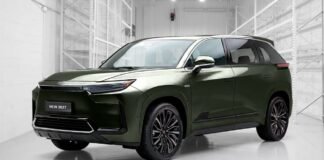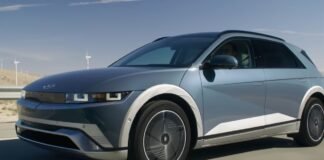Electric vehicles (EVs) are often praised for their potential to save money compared to traditional gasoline cars. However, EV ownership comes with both savings and hidden expenses that can add up quickly. Here, we’ll break down the full cost of EV ownership so you can make an informed decision, with costs listed in both USD and CAD where applicable.
1. Charging Costs: Savings with Conditions
One of the biggest selling points of EVs is their lower fueling cost. Charging an EV can cost 50-90% less than filling a gas tank. For example, in Ontario, a traditional gasoline car might cost about $1,700 USD ($2,300 CAD) annually in fuel, while an EV would only cost around $334 USD ($450 CAD). That’s an 80% savings, but these numbers depend heavily on how you charge.
Charging at home, especially during off-peak hours, offers the greatest savings. However, relying on public chargers—especially fast-charging Level 3 stations—can reduce these savings considerably. Public charging costs vary, ranging from $0.25 to $0.75 USD ($0.34 to $1.02 CAD) per kilowatt-hour. This can nearly equate to the cost of gasoline if you primarily use public charging.
Pro Tip:
- Check electricity rates and consider off-peak charging at home to maximize savings.
2. Installation of Home Charging Infrastructure
For optimal convenience and savings, most EV owners invest in a home charging station. High-quality Level 2 chargers typically range from $500 to $1,100 USD ($680 to $1,500 CAD), with installation fees depending on your home’s electrical system. For homes with older electrical systems, a full panel upgrade may be required, which can cost an additional $1,000 to $5,000 USD ($1,360 to $6,800 CAD). Even a simple installation typically costs at least $1,000 USD ($1,360 CAD).
Pro Tip:
- Always choose a certified, high-quality charger and hire a licensed professional for installation.
3. Maintenance and Repairs: What You Save and What You Pay
EVs generally require less maintenance. There’s no need for oil changes, and regenerative braking systems can extend brake life significantly. However, certain maintenance costs are unique to EVs. Tires, for example, tend to wear out faster due to the vehicle’s weight and torque, potentially leading to more frequent replacements.
Additionally, out-of-warranty repairs can be costly because of specialized components and limited repair options. While many EVs come with warranties lasting up to 8-10 years, servicing and repairs afterward can be more challenging and expensive.
Pro Tip:
- Ensure access to an EV-experienced service center, as specialized maintenance may be necessary as the vehicle ages.
4. Battery Replacement Costs
The potential cost of battery replacement is one of the most significant concerns for EV owners. While modern EV batteries are warrantied for around 8-10 years and typically last 12-15 years, replacement can cost between $10,000 and $50,000 USD ($13,600 to $68,000 CAD), depending on the vehicle. Battery failure rates are low, especially with newer EV models, but it’s important to consider this potential expense.
Pro Tip:
- Research expected battery lifespan before buying an EV. Newer EVs have advanced technology that promises better longevity.
5. Insurance Costs
Insurance premiums for EVs can be higher than those for gas vehicles. This is partly due to the higher cost of EV repairs, as well as the potential for total write-offs in the event of significant battery damage. It’s essential to check premiums beforehand, as rates vary depending on the model and local insurance options.
Pro Tip:
- Compare insurance quotes for specific EV models to avoid surprises.
6. Depreciation Rates
Depreciation can hit EVs harder than gasoline cars. The rapid evolution of EV technology makes earlier models quickly outdated, impacting their resale value. Additionally, potential buyers of used EVs may be concerned about battery life, further hurting resale value.
Pro Tip:
- Consider leasing an EV to avoid long-term depreciation concerns, especially if you plan to upgrade to newer models in the near future.
7. Consumer Protections and Rights
Consumer protections vary by region, but they’re essential for any EV purchase. In Ontario, OMVIC oversees dealer practices to ensure transparency, requiring disclosures about vehicle history, such as accidents or mechanical issues. Understanding these protections can help EV buyers make informed choices.
Is an EV Worth It?
For many, EVs remain an attractive, cost-saving option. They’re ideal for those who can charge at home, access off-peak rates, and plan to keep the vehicle within its warranty period. Incentives, such as government subsidies, can further improve their value.
However, those facing higher installation and maintenance costs or who rely on public charging may find the benefits less significant. EV ownership requires a higher initial investment, but for those willing to commit, the long-term savings and reduced environmental impact can make it worthwhile.


